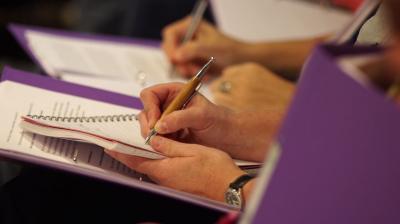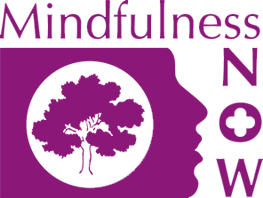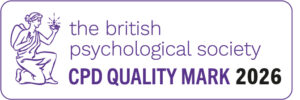Mindfulness and Neurodiversity
Saturday 7th March 2026
Trainer: Madeleine Agnew
LIVE ONLINE VIA ZOOM
10.00 – 16.30
Mindfulness and neurodiversity
Mindful Inclusion: Supporting Neurodivergent Participants in Mindfulness Teaching
Course Introduction
As mindfulness grows in reach and relevance, so must our commitment to accessibility and inclusivity to the diverse ways people experience the world. It is estimated for instance, that 15-20% of the population is neurodivergent (Doyle, 2020), and so mindfulness teachers are likely to work with participants who are neurodivergent.Neurodivergent is a term used to describe people whose brains work differently from what is considered “typical” or “neurotypical.” It refers to natural variations in how people think, learn, process information, feel emotions, and interact with the world.
People who are neurodivergent may be/experience:
• Autistic
• ADHD (Attention-Deficit/Hyperactivity Disorder)
• Dyslexic (difficulty with reading)
• Dyspraxia (motor coordination issues)
• Dyscalculia (difficulty with math)
• Tourette syndrome
• Obsessive-Compulsive Disorder (OCD)
• Bipolar disorder and other mood disorders
This short course is designed for mindfulness teachers who want to deepen their understanding of how to effectively and compassionately support neurodivergent participants and also including a focus on inclusion and accessablilty for others from marginalised communities, including LGBTQ+ individuals.
During the training we’ll explore how different forms of neurodivergence—including autism, ADHD, dyslexia, dyspraxia, and sensory processing differences—can shape how participants engage with mindfulness. Through discussion and reflective practices and exercises, you’ll learn how to adapt your teaching to be more responsive and inclusive.
You’ll also be introduced to ways of supporting LGBTQ+ participants recognising the intersecting needs that arise in safe, inclusive mindfulness spaces.
This course is rooted in compassion, flexibility, and respect for individual differences—offering you both practical tools and a mindset shift toward inclusive and adaptive practice.

For further information or to book on one of our courses please call The UK College on 0121 444 1110 or email us.




